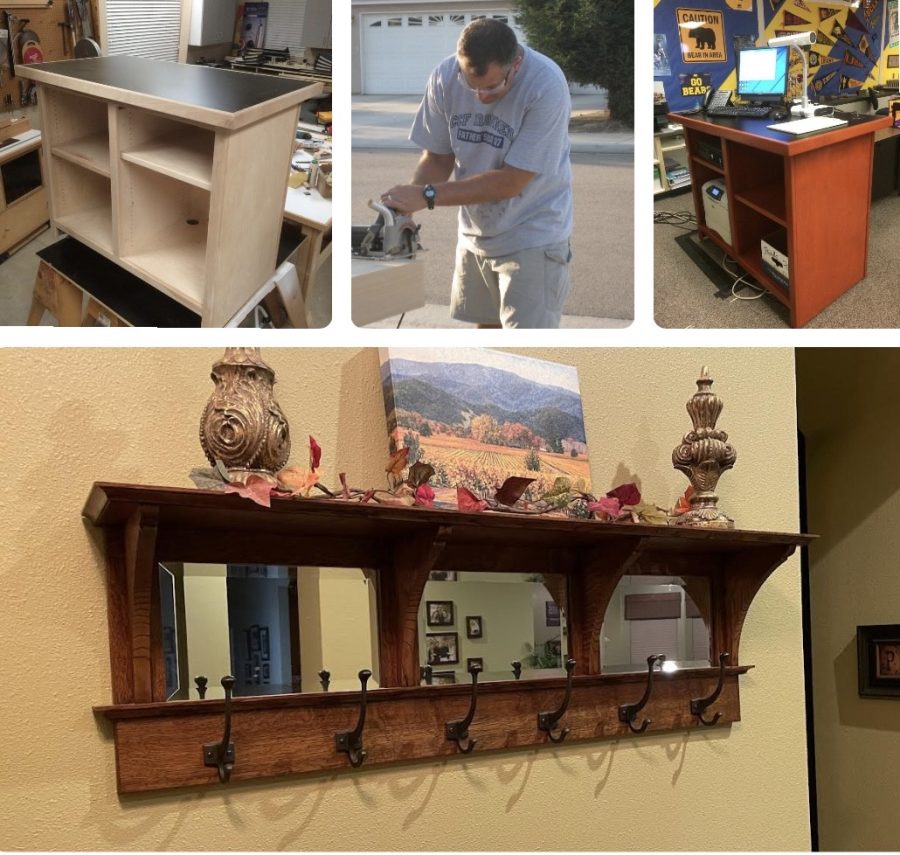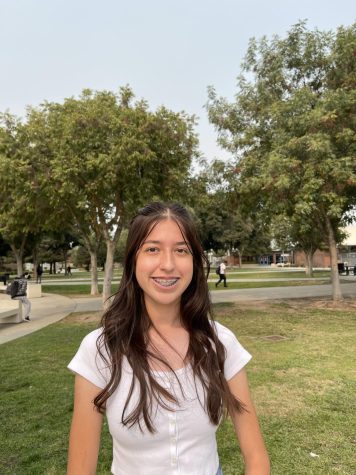Constructing Life Outside Of The Classroom
November 14, 2022
Many people do extracurriculars after school or have fun hobbies they like implementing into their lives. For Mr. Mitchell, it’s woodworking. This consists of making furniture or other fixtures that include putting pieces together.
Outside of the AP calculus and physics classroom, Mr. Mitchell enjoys woodworking while still using a little math. He’s been doing this for over 20 years now and this process is not only rewarding, but stress relieving and at times can be a learning experience.
It all began when Mr. Mitchell was in the eighth grade at Roosevelt Middle School in Mr. Harper’s woodworking class. His curiosity and wondrous interest led him to woodworking. His passion for it also originated from family members who were woodworkers.
His passion for woodworking only blossomed from there. In the late 90s, his interest in it expanded when taking a night class at Selma High.
“I really started getting interested and I started buying equipment and got some pretty big equipment in my garage,” stated Mr. Mitchell.
This past year, Mr. Mitchell even traveled all the way to Austin, Texas for a woodworking class over a weekend he had off. This hobby of his brought him that far to learn about using a variety of hand tools and the making of different fixtures.
“This really famous woodworker, nationally renowned, taught the class with 12 of us in the class,” explained Mr. Mitchell.
This isn’t just a fun hobby to do, in turn it releases this sense of accomplishment. Every time he finishes a project, though it might take a couple of attempts or days, doesn’t disregard its puncture of personal achievements granted from completing a certain aspect of a project. It also doesn’t take away the same math he uses everyday in a classroom.
“It’s really relaxing and I enjoy the math involved, like figuring out the angles that you have to cut,” expressed Mr. Mitchell.
Woodworking isn’t just about putting the pieces together. It’s about the process of getting to that end process and the emotions it releases. The aspect of learning doesn’t always come from the classroom.
“Patience and the fact that you don’t have to be a perfectionist and to just let that go and to know that it’s okay to make mistakes, that’s how you learn,” explained Mr. Mitchell.
A teacher’s life doesn’t always consist in staying in a classroom all day everyday, but they do actually have a life outside of the class. Mr. Mitchell enjoys his after work life constructing different pieces of intricate fixtures.

